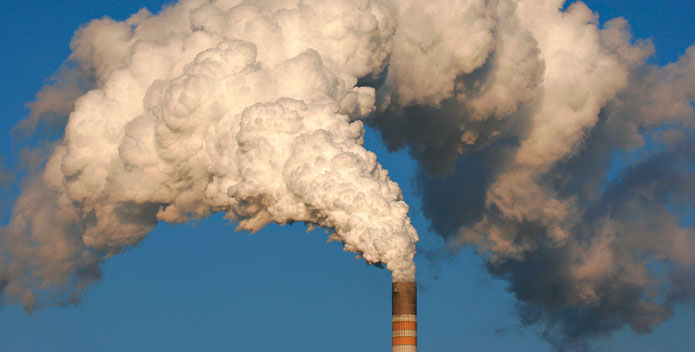The health of the Chesapeake Bay is directly connected to air pollution. Which is why the Trump administration's continued rollback of critical regulations is so alarming. This summer, the Environmental Protection Agency finalized the repeal of the Clean Power Plan, and instead replaced the regulation with the so-call Affordable Clean Energy rule (ACE). But this rule is anything but affordable or clean. Not only is the rule harmful to industry and states, it harms us all by failing to reduce pollution from power plants that contributes to climate change and sea level rise.
In 2007, the U.S. Supreme Court found that EPA had the authority to regulate greenhouse gas emissions under the Clean Air Act. Ten years later, the EPA set out to regulate those emissions from existing coal-fired power plants under the Clean Power Plan. To accomplish a 32 percent reduction in greenhouse gas emissions from 2005 emissions levels, the Clean Power Plan called for a swift but achievable transition away from heavily-polluting coal to less polluting natural gas and zero-polluting renewable energy. The reductions of emissions from the Clean Power Plan would have been the equivalent of removing the emissions from 70 percent of the nation's cars. But due to legal challenges, the Clean Power Plan was never put into effect. The Trump Administration has now fully repealed the Clean Power Plan.
Rather than transitioning power plants away from dirty coal, the ACE rule is a lifeline for aging power plants. The rule regulates power plants through heat rate improvement measures, which reduce the amount of energy required to generate electricity. But heat rate improvement measures inherently make power plants more efficient, and therefore able to run more hours in a day leading to more overall harmful emissions of carbon dioxide, nitrogen oxide, and sulfur dioxide from the plant. Worse, the ACE rule does not set an emission limit on greenhouse gas emissions, meaning that emissions could in fact increase from the changes at power plants via heat rate improvements.
Now is not the time to relax regulations of greenhouse gas emissions. Climate change poses a serious threat to the Chesapeake Bay and the 18 million people that live in the watershed. Temperatures continue to rise. In fact, June of 2019 was the hottest month on record worldwide. Warmer air means warmer water, which has a devastating effect on the critters that live there. Warmer water holds less oxygen, worsening the Bay's fish-killing dead zones.
Climate change is also increasing the intensity and frequency of severe storms. Each hurricane season since 2016 has seen a strong category five storm—that's the longest stretch of consecutive hurricane seasons with category five storms. Closer to home, sea level rise threatens to inundate the islands of the Chesapeake Bay. Sunny day flooding caused by the rising tides leaves roads impassable in Hampton Roads and the Eastern Shore of Maryland, including at CBF's Karen Noonan Education Center. These impacts will only worsen if we fail to transition away from dirty, polluting coal.
If the Bay is to be saved, we must reduce emissions of greenhouse gases. And we won't sit on the sidelines. CBF is joining a coalition of states and other environmental organizations to sue EPA. With a duty to regulate, and therefore reduce, emissions of greenhouse gases from coal-fired power plants, EPA is instead repealing the Clean Power Plan and replacing it with a rule that fails to reduce emissions. CBF along with its partners are challenging the ACE rule in order to hold EPA accountable to its duty to reduce greenhouse gas emissions, and protect the environment and the public from the harmful effects of climate change.
Brittany Wright, CBF Litigation Attorney
Issues in this Post
Air Pollution Climate Change Litigation CBF in Maryland CBF in Virginia Eastern Shore Office CBF at the Federal Level Hampton Roads Office Maryland Office, Annapolis CBF in Pennsylvania Virginia Office, Richmond



